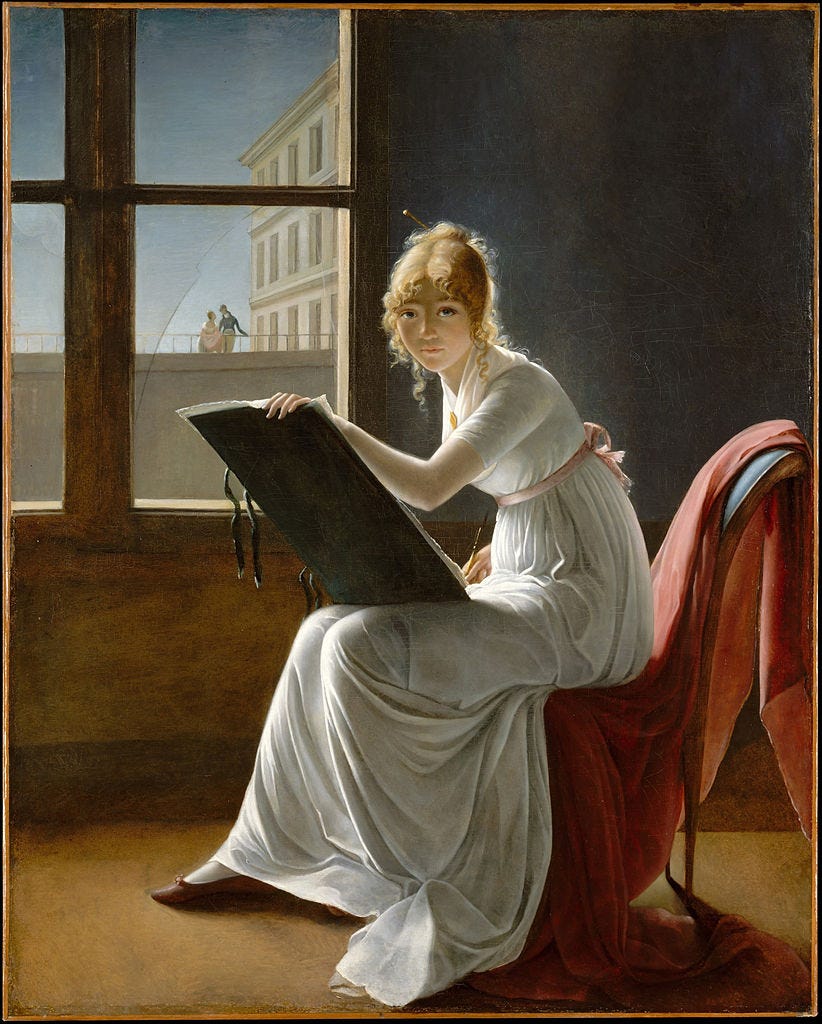I’ve been thinking a lot about writing lately, particularly writing and the self.
I was lucky enough to be formed in the classical tradition, in which the arts were truly about beauty (and truth and goodness.) In my impressionable teen years, I was taught that art was – emphatically – not about my own self-expression.
Painting, drama, music – any of these that were done merely for the sake of the performer expressing herself were immature, vapid, navel-gazing exercises. Not to mention, ugly.
Beauty, truth, goodness – these things are eternal and outside ourselves. The best artists will try to capture them, or rather, to express the eternal through a temporal medium.
At 41, I still believe this. I don’t think art is really about us in the modern sense of things being about us. I think we’re all better when we turn our gaze to the heavens to see what they will reveal.
And yet. The difficulty is that in any art, there is still an artist. And we love them for it! Man-made art carries a depth, a nuance, a something that AI and the machines will never quite match, even if they can mimic. Good art does not rid the artist of his personality, but I suspect that it may free him from it in some way.
Recently I received the most delightful piece of criticism I have perhaps ever read.
A writer friend commented on my work, “For someone who has a terrific personality and sense of humour, you sure must have gone to some extreme lengths to cut it all out of this presentation.”
He wasn’t wrong. There was very little of me in this particular work, and it was entirely on purpose. That particular presentation needed something much more universal than me and my opinions.
Still, it got me thinking.
How do we live the truth of having a unique perspective, of being ourselves, whilst still making good art? How do we make good things, true things, beautiful things, that speak of the Creator but aren’t devoid of a creator?
I think it’s probably an ongoing balancing act, tied to letting grace build on nature and being transformed, slowly, into St. Paul’s “new man.”
I imagine it’s linked to trusting that we are not mistakes, that the uniqueness God has made us with is not only for ourselves but for others, and for His glory.
And I have a sneaking suspicion that it’s bound to not being afraid of making mistakes in the learning process, knowing that in some things we create there will be too much of us and in others, not enough. Knowing that we are beloved children, and whatever the world thinks, God is happy for us to simply spend life hand-in-hand with Him.
Being creative isn’t about being profoundly original. (There’s nothing new under the sun.) It’s also not, first and foremost, about expressing oneself. We are original. And self-expression does happen. But it happens as we try to share the beauty, truth, and goodness of God and His creation.
I think we all have a unique perspective and this is a gift; but if we focus on the “my perspective” part, we’ll lose the true focus, which is the eternal.
At least, this is what I think for now. I look forward to revisiting in another 25 years.
Thanks for reading By the Sea. If you enjoy my writing, would you share it with a friend?
If you’re not subscribed, you can sign up now and get posts straight to your inbox. (It’s totally free.)




